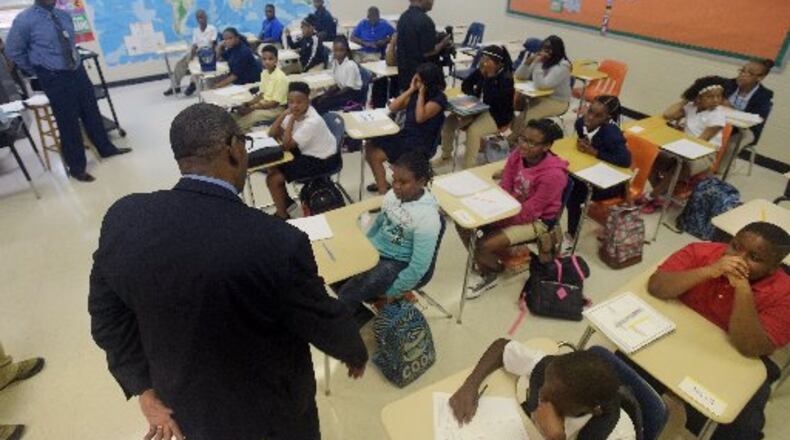While DeKalb County School District plans to improve schools place pressure squarely on school administrators, an assessment says those administrators feel “unheard” as district officials develop those plans.
The assessment of the school-based needs program, which seeks to address deficiencies at schools across the district, was prepared by Nelson Mullins Riley & Scarborough LLP, the district's legal counsel. It did not identify all staffers who were interviewed, saying some names were withheld to prevent retaliation.
A district division dealing with school improvement efforts developed a three-tier system for schools in late 2017, placing schools with the fewest needs on Tier I and schools with the most on Tier III. Schools receive different levels of support based on their tier placement.
The review brought nearly three pages of recommendations, many of which focus on communication with principals.
School board chairman Michael Erwin said the assessment “was effective in identifying the root impact of our current actions as well as the essential corrective steps needed” and “has already prompted needed changes.”
A school district statement Thursday said, “DCSD has reviewed the school-based needs assessment and has implemented several of its recommendations.”
The board was to hear a report from at a meeting Monday about what a statement from the district called “the implementation of additional measures moving forward.”
The recommendations, include:
• Invest in better branding and education surrounding the turnaround program, externally and internally
• Develop a principals advisory council that advises the superintendent
• Create an online calendar of administrative meetings
• Create an online central resource hub listing available resources
• Communicate initiatives, directives and mandates to principals earlier
• Communicate the “what” and “why” about Central Office decisions that affect schools
• Do more planning during the summer
• Let principals pick their administrative team
• Give struggling schools more autonomy in selecting their staff
• Reduce the time principals have to be out of their buildings for district meetings
• Provide more positive reinforcement and recognition for principals
• Give principals more time to improve their schools
The assessment was one of two completed in 2018 by the law firm but made public by the DeKalb County Board of Education earlier this year. It was released after The Atlanta Journal-Constitution and WSB-TV requested a purchasing and procurement assessment that was debated during January's school board meeting.
The amount of time the district gives principals to improve their schools came up at the end of the 2016-2017 school year when the district announced that nine principals were being removed from their struggling schools. Many were reassigned as assistant principals or to central office jobs while some retired.
At the time, the district sent letters home with students from Dresden, Rock Chapel, Panola Way, Oak View, the International Student Center, Shadow Rock, Stoneview, Flat Rock and Snapfinger elementary schools to inform parents of the changes.
“There’s an accountability element here that we’re not shying away from,” Green said then. “We developed a rubric that we would need to see certain evidence of progress in areas and if we saw that, we would continue with the leadership at that school. If we didn’t, we would be honest … that perhaps it’s better to give the school a chance to reboot and also reassign the leadership in that area.”
About the Author
Keep Reading
The Latest
Featured



